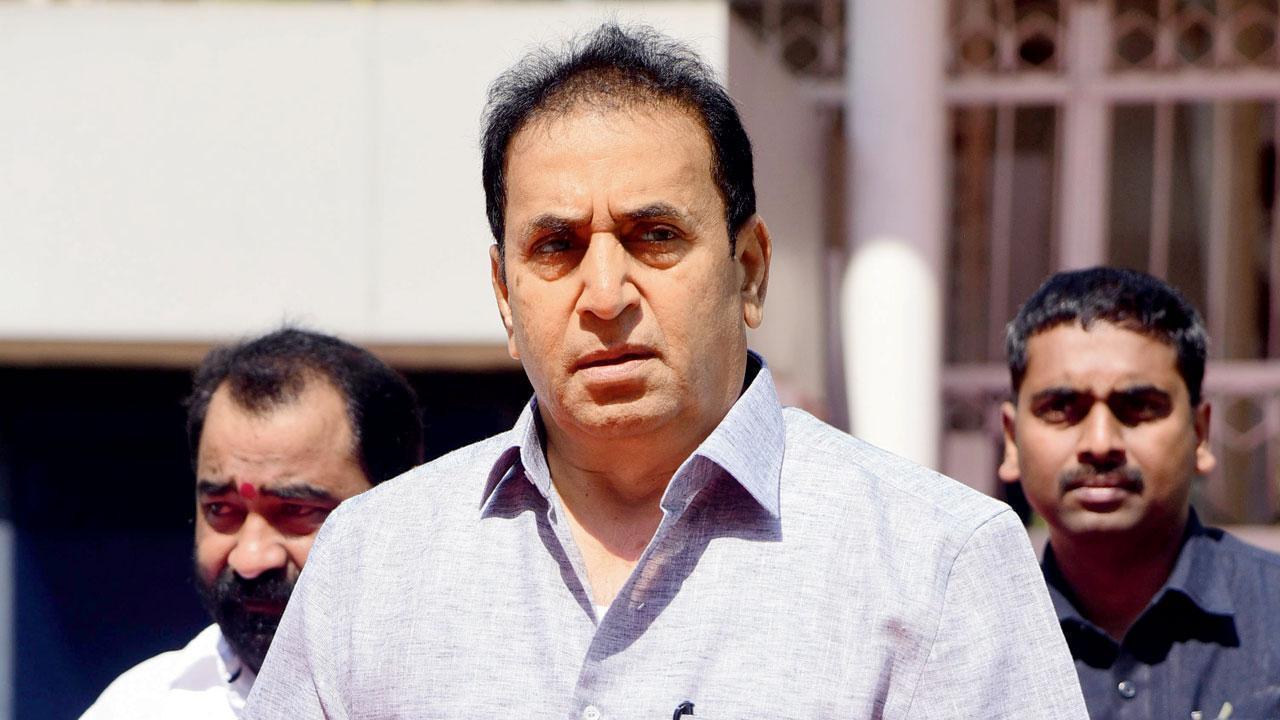A single bench of Justice S K Shinde said the objection raised by the HC registry department that the issues raised in the plea ought to be heard by a division bench is 'correct'

Former Maharashtra minister Anil Deshmukh. File pic
The Bombay High Court on Tuesday said its division bench (comprising two judges), instead of a single-judge bench, would hear the petition filed by Maharashtra's former home minister Anil Deshmukh against the summons issued to him by the Enforcement Directorate in a money laundering case.
ADVERTISEMENT
A single bench of Justice S K Shinde said the objection raised by the HC registry department that the issues raised in the plea ought to be heard by a division bench is 'correct'.
Justice Shinde directed the registry department to place Deshmukh's petition for hearing before the appropriate division bench.
Deshmukh filed the petition earlier this month, seeking to quash the five summons issued to him by the Enforcement Directorate (ED).
Last week, when the plea came up for hearing before Justice Shinde, Solicitor General of India Tushar Mehta, appearing for the ED, brought to the HC's attention a note addressed by the registry department saying the plea has to be heard by a division bench.
Senior counsel Vikram Chaudhri and advocate Aniket Nikam, appearing for Deshmukh, said the single bench had the jurisdiction to hear the plea.
The court had then said it would consider the issue and pass orders.
Also read: Anil Deshmukh corruption case: Delhi HC asks CBI to file reply on bail plea of lawyer Anand Daga
The ED had initiated a probe against Deshmukh and his associates after the Central Bureau of Investigation (CBI) filed its FIR against the NCP leader on April 21 on charges of corruption and misuse of official position.
Deshmukh in his plea claimed the ED's action was a result of political vendetta.
The petition also said the agency's whole case was based on ¿malicious statements¿ made by dismissed police officer Sachin Waze, who is presently in jail in connection the case of an explosives-laden vehicle found near the residence of industrialist Mukesh Ambani in February this year and the subsequent killing of businessman Mansukh Hiran.
"The statements made by Waze, a tainted cop, are absolutely false and concocted with a malafide intention to defame and frame the applicant (Deshmukh) with ulterior motives," the petition said.
Deshmukh refuted the claims made by the ED that while serving as Maharashtra's home minister, he had misused his official position and through Waze collected Rs 4.70 crore from various bars and restaurants in Mumbai.
The money was allegedly laundered to Nagpur-based Shri Sai Shikshan Sanstha, an education trust controlled by Deshmukh's family.
"The entire claim of Waze giving Rs 4.70 crore to the applicant (Deshmukh) and the same amount being routed by the applicant's family is factually incorrect," the plea said.
The petition also said the amount received by the Shri Sai Shikshan Sanstha was donations made before the period in which Waze alleged to have received illegal gratification from bars and restaurants.
"There was never any cash received as illegal gratification from bar owners as claimed by Waze," the plea said.
The ED has so far arrested two persons in the case - Sanjeev Palande (additional collector rank official who was working as Deshmukh's private secretary) and Kundan Shinde (Deshmukh's personal assistant).
The agency last month submitted its prosecution complaint (equivalent to a charge sheet) against the duo before a special court.
The CBI had lodged its FIR against Deshmukh after it conducted a preliminary enquiry against the NCP leader following an order from the HC on April 5.
Deshmukh resigned from the post of state home minister on April 5, but has repeatedly denied any wrongdoing.
This story has been sourced from a third party syndicated feed, agencies. Mid-day accepts no responsibility or liability for its dependability, trustworthiness, reliability and data of the text. Mid-day management/mid-day.com reserves the sole right to alter, delete or remove (without notice) the content in its absolute discretion for any reason whatsoever.
 Subscribe today by clicking the link and stay updated with the latest news!" Click here!
Subscribe today by clicking the link and stay updated with the latest news!" Click here!






